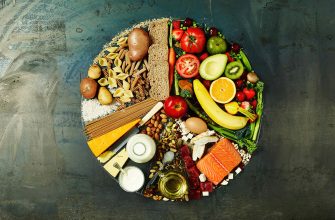We live in a world where sugar is a staple in our diets, but with growing concerns about health and the rise of diabetes, many people are looking for healthier alternatives. Natural sweeteners offer a solution, providing sweetness without the negative effects of refined sugar. In this article, we’ll explore the 7 best natural sweeteners and share tips on how to use them in your cooking and baking.
-
Content
- Stevia: The Zero-Calorie Wonder
- Honey: Nature’s Liquid Gold
- Maple Syrup: A Taste of the Forest
- Coconut Sugar: A Tropical Touch
- Date Sugar: Fruitful Sweetness
- Monk Fruit Sweetener: A Healthful Alternative
- Agave Nectar: A Cactus Delight
- Molasses: Rich, Earthy Flavor
- Yacon Syrup: A Gut-Friendly Option
- Brown Rice Syrup: A Nutty, Caramel-like Taste
- Xylitol: A Sugar Alcohol Alternative
- Erythritol: Another Sugar Alcohol Option
- Experimenting with Different Sweeteners
Stevia: The Zero-Calorie Wonder

Stevia is a natural sweetener extracted from the leaves of the Stevia rebaudiana plant. It is calorie-free and doesn’t raise blood sugar levels, making it a popular choice for those watching their weight and blood sugar. To use stevia, start with a small amount and adjust to taste, as it can be much sweeter than sugar. It works well in beverages, yogurt, and some baked goods.
-
Honey: Nature’s Liquid Gold
Honey is not only delicious but also offers antioxidants and antibacterial properties. Keep in mind that honey is sweeter than sugar, so use about ¾ cup of honey for every cup of sugar in recipes. Honey works well in dressings, marinades, and baked goods, but be mindful of its higher calorie content compared to sugar.
-
Maple Syrup: A Taste of the Forest

Maple syrup, made from the sap of maple trees, offers a rich, earthy flavor that complements many dishes. Use a ¾ cup of maple syrup for every cup of sugar, and reduce the liquid in the recipe by about 3 tablespoons. Maple syrup shines in baked goods, glazes, and sauces.
-
Coconut Sugar: A Tropical Touch
Coconut sugar is made from the sap of the coconut palm and has a subtle caramel flavor. Use it in a 1:1 ratio with sugar, making it an easy substitute. Coconut sugar works well in baking and adds a hint of tropical flavor to dishes.
-
Date Sugar: Fruitful Sweetness

Date sugar, made from ground, dehydrated dates, is high in fiber and nutrients. Use it in a 1:1 ratio with sugar, but be aware that its texture is coarser than regular sugar. Date sugar is great in baked goods, granola, and oatmeal.
-
Monk Fruit Sweetener: A Healthful Alternative
Monk fruit sweetener is derived from the monk fruit, a small melon native to Asia. It’s calorie-free and doesn’t impact blood sugar levels. Use monk fruit sweetener sparingly, as it is much sweeter than sugar. It works well in smoothies, desserts, and beverages.
-
Agave Nectar: A Cactus Delight

Agave nectar comes from the agave plant and has a mild, neutral flavor. Use 2/3 cup of agave nectar for every cup of sugar and reduce the liquid in the recipe by 2 tablespoons. Agave nectar is perfect for sweetening beverages, dressings, and sauces.
-
Molasses: Rich, Earthy Flavor
Molasses is a thick, dark syrup produced as a byproduct of sugar refining. It contains nutrients like iron, calcium, and magnesium, making it a healthier choice compared to refined sugar. Use 1 1/3 cups of molasses for every cup of sugar, and reduce the liquid in the recipe by 5 tablespoons. Molasses is excellent in gingerbread, cookies, and barbecue sauces, but remember that its strong flavor may overpower some dishes.
-
Yacon Syrup: A Gut-Friendly Option

Yacon syrup comes from the roots of the yacon plant native to South America. It is high in fructooligosaccharides, which act as prebiotics and can benefit gut health. Use 2/3 cup of yacon syrup for every cup of sugar and reduce the liquid in the recipe by 2 tablespoons. Yacon syrup is suitable for smoothies, dressings, and drizzling over yogurt or oatmeal.
-
Brown Rice Syrup: A Nutty, Caramel-like Taste
Brown rice syrup is made by breaking down brown rice starch into simple sugars. With a nutty, caramel-like taste, it is less sweet than sugar. Use 1 ¼ cups of brown rice syrup for every cup of sugar, and reduce the liquid in the recipe by ¼ cup. Brown rice syrup is ideal for granola bars, energy balls, and baked goods.
-
Xylitol: A Sugar Alcohol Alternative

Xylitol is a sugar alcohol derived from plants like corn or birch trees. It has fewer calories than sugar and doesn’t impact blood sugar levels as much. Use xylitol in a 1:1 ratio with sugar, but be cautious as it can cause digestive issues for some people when consumed in large quantities. Xylitol works well in sugar-free baking and sugar-free beverages.
-
Erythritol: Another Sugar Alcohol Option
Erythritol, another sugar alcohol, is found in fruits and fermented foods. It has almost no calories and doesn’t impact blood sugar levels. Use erythritol in a 1:1 ratio with sugar, keeping in mind that it may have a cooling sensation in the mouth. Erythritol is suitable for sugar-free baking, desserts, and beverages.
Experimenting with Different Sweeteners
As you explore the world of natural sweeteners, don’t be afraid to mix and match to find the perfect balance of taste and texture for your recipes. Each sweetener has its unique properties, and combining them can create interesting flavors and textures while maintaining the health benefits of using natural alternatives to sugar.
By trying out different natural sweeteners, you’ll not only create healthier dishes but also expand your culinary repertoire. So, embark on this journey of natural sweetness and discover the endless possibilities these ingredients have to offer.

